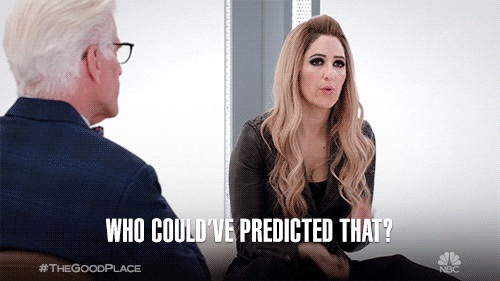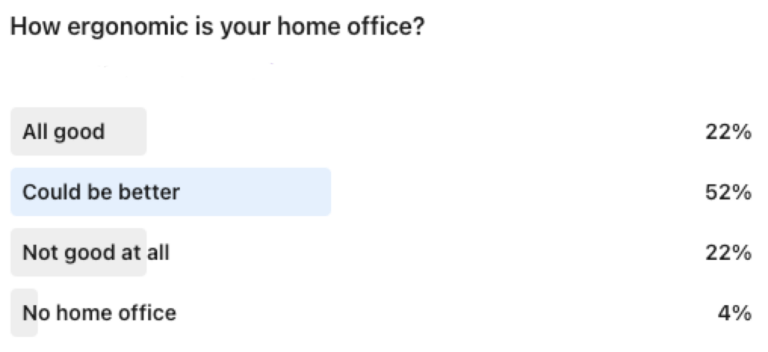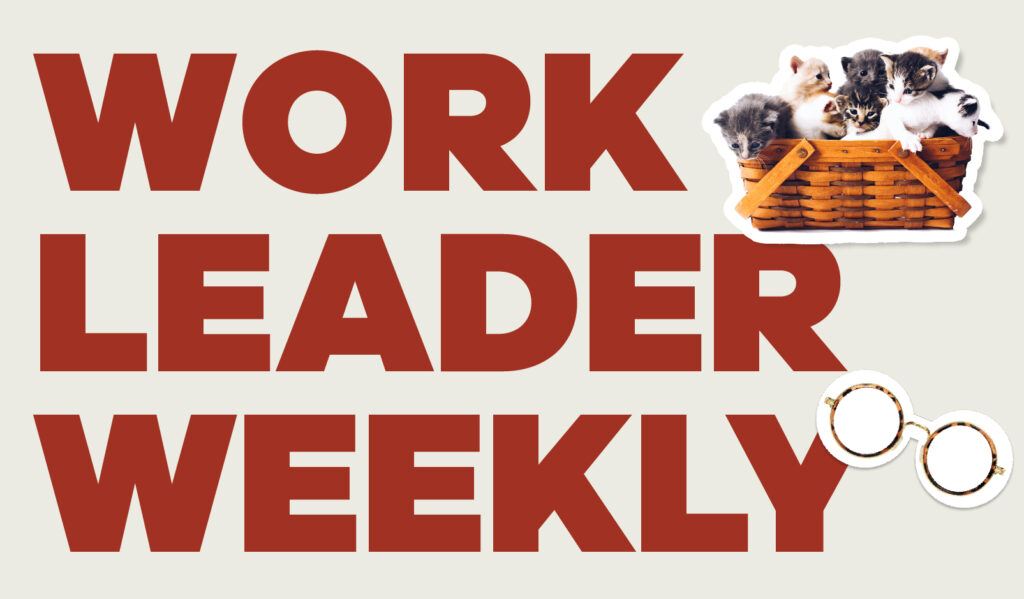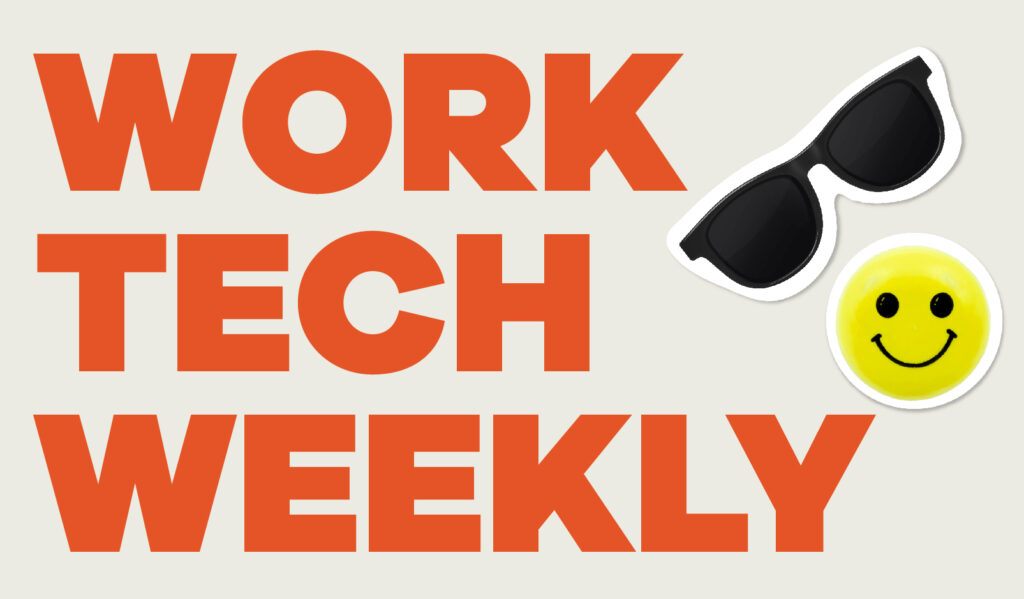Hello.
We’re almost midway through 2023. Time’s steady pace seems particularly surprising right now, but I’m glad you made it through another six months of unprecedented history.
In this week’s newsletter, we’re covering the decline of WFH job postings, why bosses and employees disagree on how they are doing, and Ohio tries to cut back on remote. But first, is our Magic 8-ball broken when it comes to forecasting what work will look like in the not-so-distant future?
Let’s jump into it.
Why Do We Keep Failing to Predict the Future of Work?
One of my favorite commercial series is AT&T’s You Will campaign from the 90s. Directed by David Fincher six years before Fight Club and narrated by the always impressively mustached Tom Selleck, these ads promised innovation like GPS navigation with real-time traffic, videoconferencing, telemedicine, and distance learning. Sound familiar?
They also predicted you’d be sending faxes from the beach and doing video calls from a phone booth.
While it took 30 years, we’ve more or less realized the world that AT&T envisioned in those commercials. Unfortunately for AT&T, it generally wasn’t the company that brought these innovations to market (outside of the telecommunications infrastructure they were so well known for).
Why am I bringing this up today? Well, thanks to the explosion of generative AI, we again see a lot of fantastical predictions about the future of work.
We’ve been here before. As Bhaskar Chakravorti, Dean of Global Business at The Fletcher School of Tufts University, wrote for The Conversation, tech waves of the past haven’t been as predictable as the future that AT&T imagined. Since the internet revolution in the 90s through today, Chakravorti has tracked just how awful we’ve been in guessing how these technologies will impact work. In closing, he wrote:
Finally, given how wrong economists and other experts have been in the past, it is safe to say that many of today’s predictions about AI technology’s impact on work and worker productivity will prove to be wrong as well. Numbers such as 300 million jobs affected or $4.4 trillion annual boosts to the global economy are eye-catching, yet I think people tend to give them greater credibility than warranted.
When you read that AI will take away millions of jobs or productivity will go through the roof with fewer employees, pump the brakes on the panic.
So, if we are continually more wrong than right about predicting the future of work, why do we keep trying? The cynical part of me wants to say, “Because it gets attention.” Kingmakers and fortune tellers have always been powerful archetypes in history. People are fascinated by it.
But I do think predictions, even incorrect ones, play a valuable role in the world. They challenge us to think beyond the present, something that is hard to do on a day-to-day basis. When you hear a bullshit claim about how work is going to change, it makes you think about why work isn’t going in that direction. That gives you valuable insights into how you might think things will change — even if you don’t believe every clickbait article you read.
More importantly, as AT&T showed, predicting the future isn’t as important as making the future. Outside of Apple or Microsoft, most of the companies that are doing today what the telecom giant predicted didn’t even exist in 1993. Even Apple and Microsoft required painful transformations to play their role in what has become our future.
As work leaders, understanding how you’ll make the future is critical to your role. Even if you don’t get value out of the predictions, they might shift your perspective enough to make the future a little more apparent.

Weekly LinkedIn poll result
I am shocked that more than one in five people say their home office is all good ergonomically. I’ve seen some of your setups and they are not good. I think most of you are honest with more than half saying it could be better.

Quick hits from around the web
What else is happening?
- Focus on Skills to Grow Your Workforce. One of the few things organizations can control with their workforce is how to develop them. (MIT Sloan Review)
- Starbucks Broke Labor Law at Shuttered Seattle Store, NLRB Says. Will this change how the coffee giant acts in response to unionization efforts? I’m not holding my breath. (The Seattle Times)
- Work-From-Home Job Openings Shrinking. One sure way of recruiting talent today: Offer real remote work. (Barron’s)
- Europe’s Message to Workers: Retrain or Fall Behind. Like the U.S., Europe is facing similar challenges — but they are delivering a more candid message to employees. (Politico)
- Can’t Offer Remote Work? Companies Should Consider Four-day Workweeks Instead. Every organization is going to have a flexibility hook that they can use going forward. (Louisville Business First)
- Counting Key Card Swipes Is Killing the Future of Work. Looking through key card swipes is just above checking an employee’s web browsing history when it comes to dumb HR tasks. (Forbes)
- Show the Love: Recognition Is an Essential Part of Employee Experience. Nobody has ever said they want zero recognition. Finding the right mix is the challenge. (Employee Benefit News)
- Employees Say Their Well-Being Has Worsened, but Bosses Disagree. We see this gap in a lot of the research we are doing for clients where leaders think their employees are doing much better than they actually are. (CNBC)
- The Uneven Effect of Remote Work, in One List. Geographic and industry play a major role, but they’re not the only factors. (NY Times)
- Globally, Employees Are More Engaged — and More Stressed. I missed sharing this one. Don’t get too excited about that boost in engagement, though. (Gallup)
- Is It Time to Embrace TikTok as a Recruitment Tool? Just like any sort of social media, if you have the eyeballs, it makes sense to consider it for recruiting. (TLNT)
- Amendment Introduced to Limit Remote Working in Ohio. Working and recruiting for the state of Ohio might get a bit harder if this passes. (WDTN)
- AI Generates Excitement and Fear as Employees Worry About Job Security. A quarter of employees believe their job is at risk. (Qualtrics)
- For Companies Sticking with Remote Work, the Rules Are Becoming Clear. Yes, we can learn some things from tech companies that have done this for awhile, but you also need to find your own way. (CNBC)
Work Leader Weekly Podcast Ep. 17 – Gallup’s State of the Global Workplace
Is global engagement up? Is it down? Does it matter much when it only changes a percent or two each year?
As leaders, it’s crucial to stay informed, but it’s also essential to challenge the data. Bret and I discuss the 2023 Gallup report on the state of the workplace and provide our perspective on employee engagement and experience in today’s workforce. You can watch the podcast on YouTube or listen on Podbean (or wherever you get your podcasts).
That’s it for this week!
Lance





